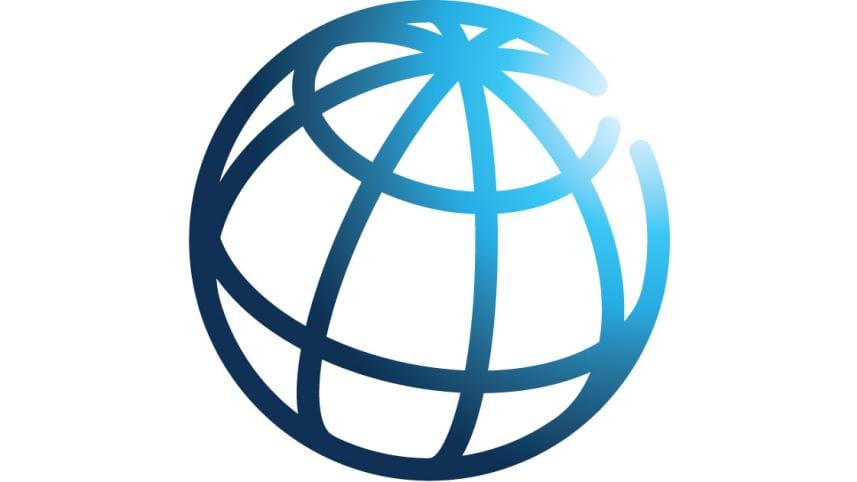World Bank flags deepening crisis in banking sector

Bangladesh's banking sector faces significant challenges due to longstanding structural weaknesses and recent emerging risks, according to the World Bank (WB).
Low economic growth due to political uncertainty, forex shortage, and low investor confidence are feared to worsen vulnerabilities in the financial sector, dominated by banks representing 88 percent of total financial sector assets.
In its April issue of "Bangladesh Development Update" released yesterday, the multilateral lender said the sector has been suffering from high levels of non-performing loans (NPLs), low capital adequacy, and operational inefficiencies.
"Governance issues, regulatory capture, political interference in lending, and related-party lending have worsened the sector's performance and solvency over the years," it said.
The report said despite Bangladesh's strong economic growth, financial sector vulnerabilities remained persistent and the authorities left these deficiencies unaddressed, and weak banks were suffering from NPLs and capital shortages.
The adoption of international prudential standards was slow, and forbearances were granted repeatedly, it said.
The WB said the banking sector has shown robust growth in terms of loans and deposits over the years, with loans and investments accounting for 85 percent of banks' balance sheets.
The composition of loans is heavily skewed towards corporate lending, with the industrial and trading sectors being the largest recipients of bank loans.
Overdue loans remain a persistent challenge across all sectors, reflecting broader financial vulnerabilities, it added.
In terms of credit distribution, the industrial sector holds the largest share of outstanding loans at 42 percent, followed by trade and commerce at 34 percent, while the remaining sectors collectively account for 24 percent, it said.
The WB said gross NPLs more than doubled to Tk 290,000 crore in September 2024, and the NPL rate rose to 20.2 percent in December 2024.
About 46 percent of the banking sector's NPLs were confined to nine state-owned banks, it said.
Citing the BB, it said the central bank expects that NPLs would likely exceed 30 percent in view of the 90-days-past-due rule under the new NPL definition aligned with international standards, effective in April 2025, and strict enforcement.
The WB said widespread capital shortfalls across banks reveal deep structural weaknesses, necessitating urgent regulatory and policy interventions.
"State-owned commercial banks are the most vulnerable in the banking sector, contributing significantly to its overall strain," it said.
It said weak banks were experiencing liquidity shortages despite recent improvements in overall sector liquidity.
The Washington-based lender said the experiences of past banking crises highlight the importance of prompt resolution actions.
REFORM INITIATIVE BY THE INTERIM GOVT
The WB said following the regime change and recognising the fragility of the banking sector, the interim government and Bangladesh Bank (BB) embarked on financial sector reforms, revealing true vulnerabilities in the sector.
"These efforts started revealing the true weaknesses in the banking sector, leading to higher NPLs and more widespread capital shortages, requiring immediate attention by the BB and the government," it said.
The multilateral lender added that while efforts were in progress, additional work was required to complete the reform.
"Strengthening supervisory enforcement, improving transparency in state interventions, and aligning resolution mechanisms with international best practices are critical to restoring financial sector stability and ensuring long-term resilience," it said.
The WB also said Bangladesh needs to strengthen the financial sector safety net.
The Deposit Protection System (DPS), managed by BB's Deposit Insurance Department, is one of the key pillars, it said.
It requires a stronger legal framework and institutional capacity, building on the Deposit Protection Ordinance, for robust data management and payout procedures, it added.
"An effective NPL resolution and recovery system is indispensable. The existing legal framework fails to facilitate swift loan recovery, with courts being overburdened and borrowers able to file writ petitions in money loan courts, which delays the entire process," it said.
"The procedure for seizing collateral is lengthy and time-consuming, further exacerbating the issue," said the WB.
The WB lauded the BB's efforts but suggested that the authorities improve corporate governance and risk management, and restructure state-owned banks.
It also recommended the establishment of a robust NPL management framework, enactment of a comprehensive bankruptcy law, and enforcement of banking regulations.
The WB said full autonomy of the BB in its regulatory, supervisory, and decision-making processes was necessary.



 For all latest news, follow The Daily Star's Google News channel.
For all latest news, follow The Daily Star's Google News channel.
Comments